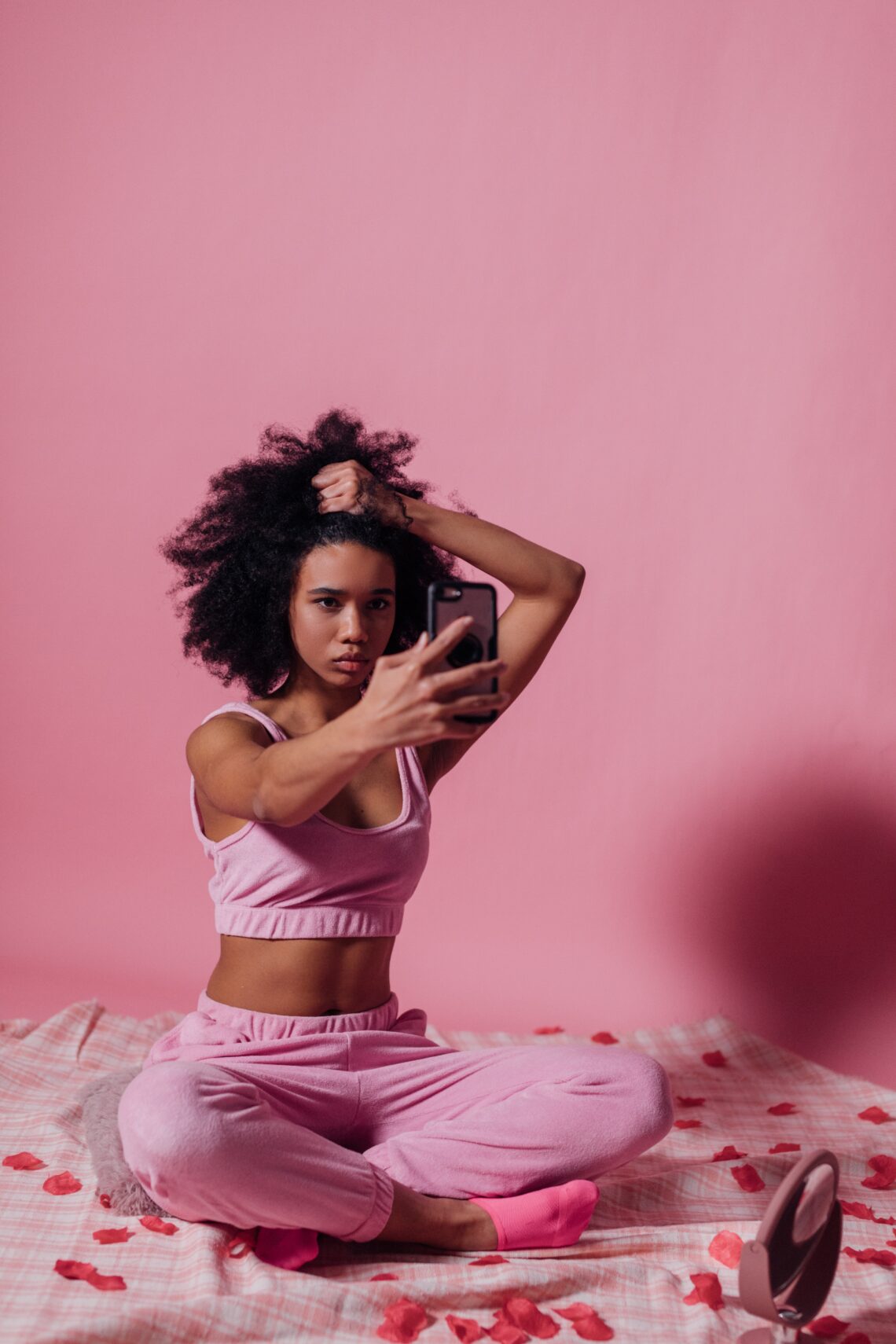
Short-lived filtered confidence
As a seasoned millennial, Katie Conohan remembers a time when social media filters didn’t exist.
She thinks back to when people would post unedited photos of themselves throwing up peace signs with their friends. Or poorly angled selfies that showcased their unblended frosted eyeshadow and glittery shiny lip gloss. A time when people unabashedly shared their unfiltered selves on social media and made no attempt to hide any of their imperfections.
Now, Conohan finds that she is unable to take a photo without using a filter. She admits that she has grown reliant on the digital manipulations offered on social media platforms like Snapchat and Instagram that provides users with the appearance of clear skin by erasing any blemishes and smoothing out pores.
“It’s not that I’m trying to be fake,” she says. “I’m just very insecure about how I look and it’s a way to give myself a little boost of confidence.”
The boost of confidence is not a permanent one as Conohan finds herself favouring her filtered appearance, ultimately leaving her feeling more insecure. It’s also resulted in her trying to replicate the virtual version of herself through the use of makeup as she grows more attached to this optimized version.
In the past, individuals seeking plastic surgery operations would bring in photos of celebrities as inspiration but recently there has been a surge in patients instead trying to mirror digitally enhanced portrayals of themselves through surgical means.
The phenomenon has been dubbed “Snapchat Dysmorphia,” a term originally coined by Dr. Tijion Esho, who has refused to perform surgical alterations on patients requesting to look like their filtered selves.
“Treating someone like this will start them on a journey where they will never be happy and psychological support is needed,” he stated in an article published by Independent in 2018.
Esho is not the only one to have noticed the potential dangers rooted within Snapchat Dysmorphia—in a study conducted by JAMA Facial Plastic Surgery, it was found that it could be possible for filters to cause users to lose touch with reality because of the enforced expectations to look perfectly filtered in real life. The study also noted that the risk could be higher for adolescents and/or those suffering from body dysmorphic disorder.
Alexa Cate, a high-school student, believes that using social media filters has had a negative impact on her opinion of her own appearance. Similarly to Conohan, she finds herself rarely able to take a selfie or video without utilizing a filter to smooth out her skin.
“I find myself wishing that my skin was as clear as the filters make it look,” she says. “Then when I take off the filter, I usually have an even more negative opinion of my actual skin.”
Katey Park, a current PhD candidate at Ryerson/X University whose research focuses include body image, social media and mindfulness, believes that it’s important to note that there has always been sociocultural pressures for women to maintain a certain sense of idealistic beauty—the format has just recently changed from movies and television to social media.
“The problem of unrealistic beauty standards has always been there,” she says.
“Filters didn’t introduce them.”
Park also says another element that could be contributing to people’s negative opinions towards their appearance is the close proximity between users and the camera lens when taking a selfie.
The short distance causes some people to fixate on supposedly undesirable traits such as wrinkles, enlarged pores, wide noses or asymmetrical facial features, which they may not have been aware of prior to the inception of selfies. In response to these introduced insecurities, filters can offer an easy fix by allowing people to perform Photoshop inspired retouches to their personal photos.
Cate believes that filters are especially harmful because so many people use them and it has amplified into an unrealistic beauty standard that everyone is trying to embody.
“One of these reasons why people feel so insecure is that they see other people with these filters on and think that those people actually look like that,” she says. “And then they compare themselves to someone who doesn’t even really look like that.”
Cate and Conohan both believe that the potential risk of appearance comparison that filters encourage is a serious concern and in need of solution.
Cate mentions that one potential remedy could be the creation of policies that require disclaimers stating if a photo is filtered, similar to the law introduced by France in 2017. This law stipulates that all images that have been modified must be accompanied by a notice. She thinks that this could inform individuals that the person in the photo doesn’t actually look like that and could minimize the urge to compare themselves to this digitally manifested image.
While Park does agree that appearance comparison and body dysmorphic disorder are serious issues, the research that has been done has found that disclaimers were not helpful. She explains that in two studies it was actually found that disclaimers made people more likely to compare themselves.
She instead advocates for the inclusion of more diverse body types in the media and also stresses that plastic surgery is not the answer to solve any kind of body dysmorphic disorder, not just ones influenced by social media filters.
“It’s a mental illness—there’s not actually anything wrong with your nose,” she says.
The upside is that with cognitive therapy and medication, body dysmorphic disorder can be treated with high success rates.
Conohan hopes for a future in which society can recreate the pre-filter social media experience that wasn’t centred around seeking approval from others through digital enhancements—but frosted eyeshadow can stay in the past, where it belongs.
About the author
Olivia Matheson-Mowers is a former reporter for Youth Mind. When she’s not writing, or playing with her cat, Daisy, you can find her curled up in her heated blanket watching seasons 1-6 of Dragon Ball Z and complaining about seasons 7-9.







